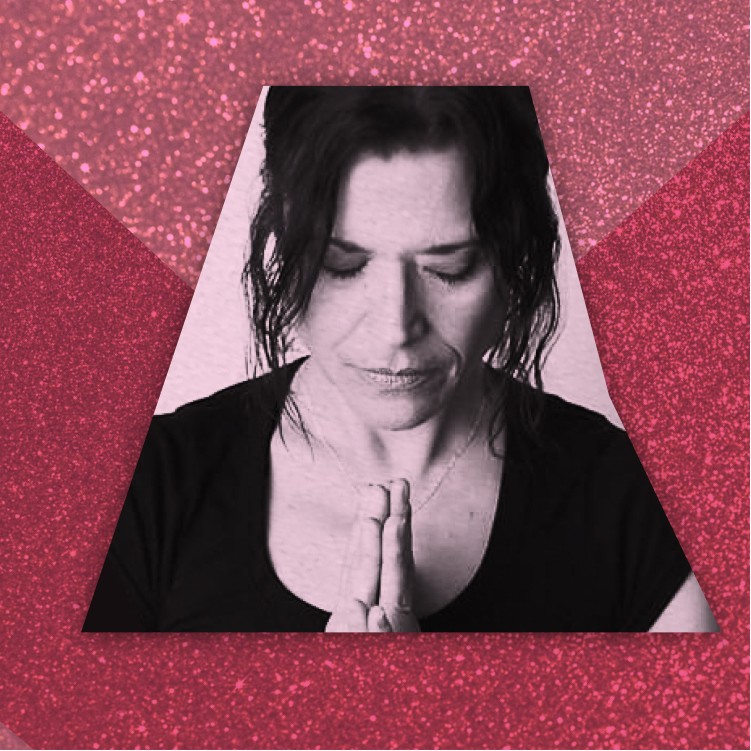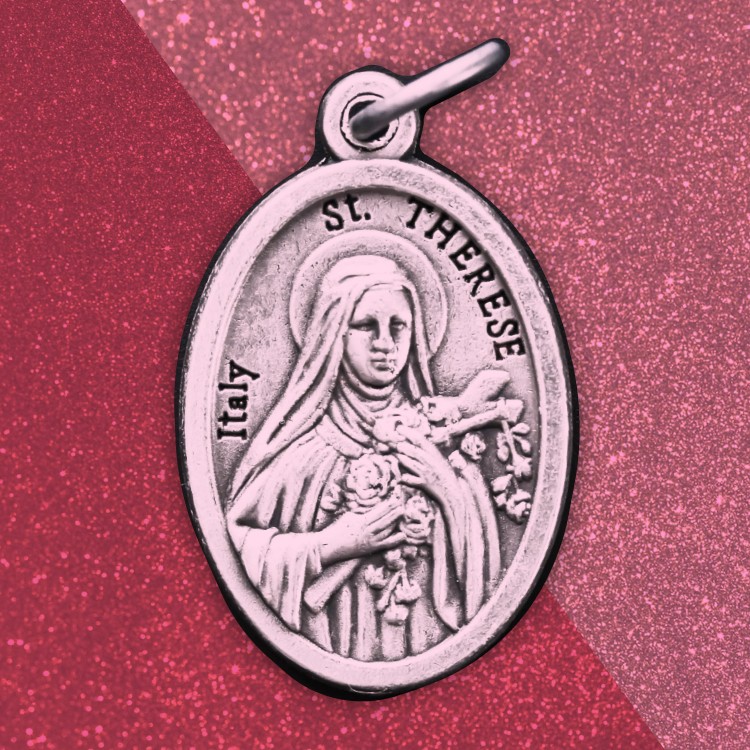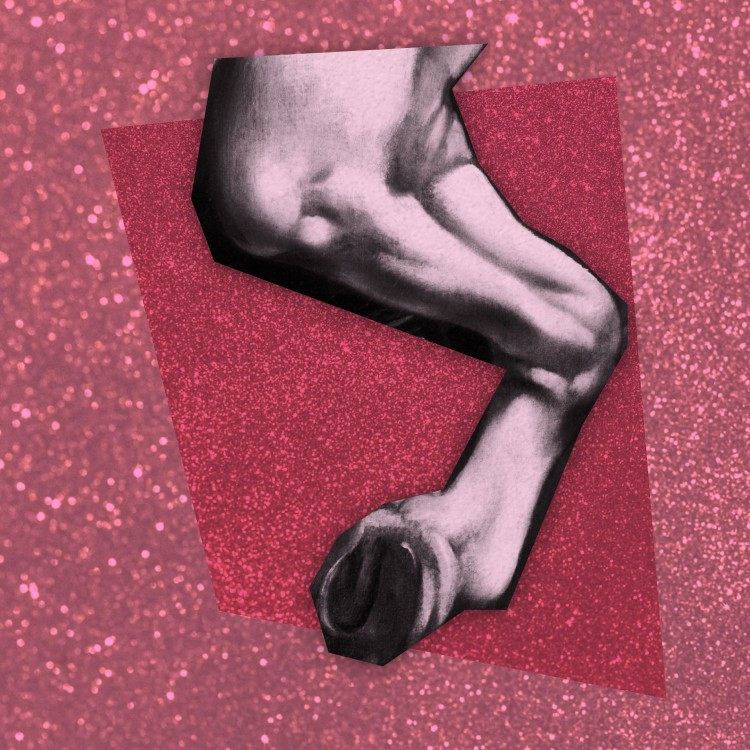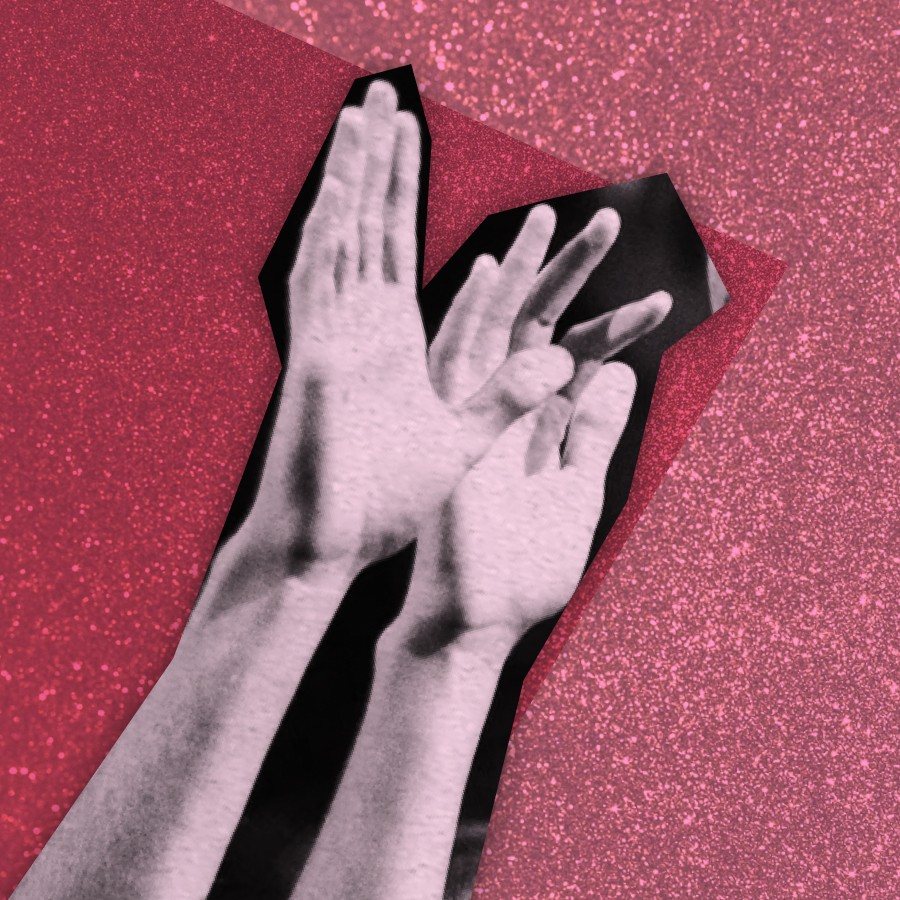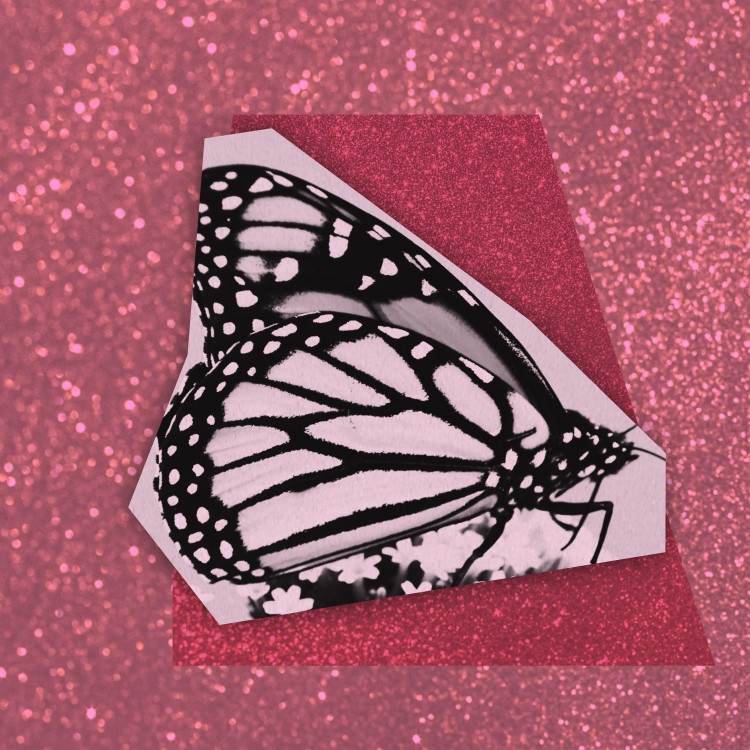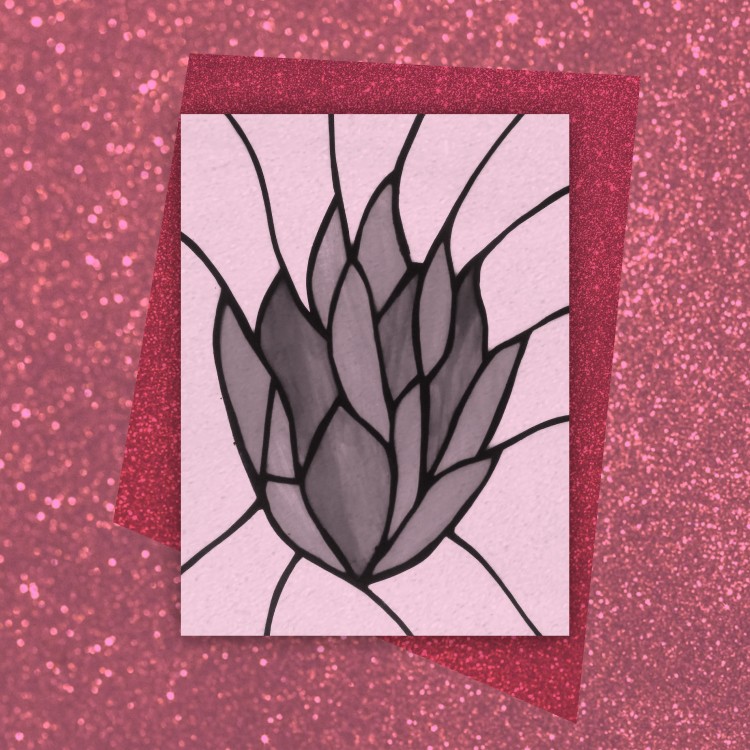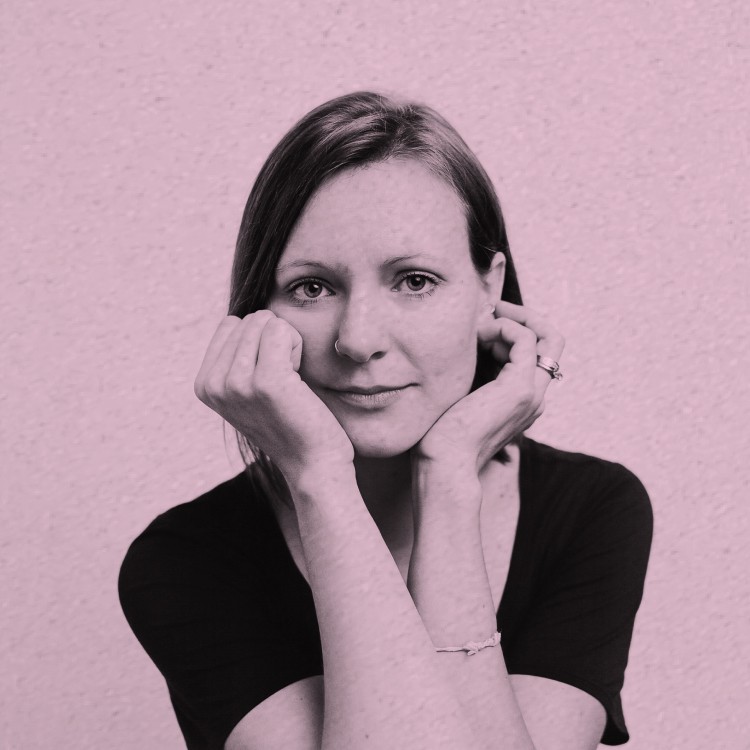Notre Dame is Burning
Alana’s newfound love separates her from her church. As Notre Dame Cathedral burns, so does her faith. But as her self-acceptance grows, her life takes a tragic turn.
Part 7 • 44:44
Dear Alana, is available free on all platforms and as an exclusive ad-free binge for Tenderfoot+ subscribers. To sign up or learn more, visit Tenderfootplus.com.
Transcript
The following episode contains references to suicide. If you or someone you know is in need of help, please contact the Suicide and Crisis Lifeline by dialing 988. Listener discretion is advised.
[Music: “Nos Veremos,” by Y La Bamba]
NEWSHOST 1: Flames brought down the spire and much of the roof at Notre Dame Cathedral yesterday.
NEWSHOST 2: Notre Dame took 200 years to build. It’s one of the greatest treasures of medieval architecture. Tonight, it lies in ruins.
ALANA: “I’m proud to say I’m not your daughter. What kind of father leads his children to the slaughter. Notre Dame’s flames are getting hotter. We’re exorcizing these monsters, driving out the imposters. Resisting the conquerors. My mother is the one who raised me back to life. My mother's raising hell and demanding you pay the price. You put your love in candy wrappers just to entice them. You dump your burden on their backs and scourge them and crucify them. We’re putting an end to all the children being sacrificed to him. Notre Dame’s flames are getting hotter. Notre Dame’s flames are getting hotter!”
SIMON KENT FUNG: From Tenderfoot TV, I’m Simon Kent Fung. And this is Dear Alana.
Part seven. Notre Dame is Burning.
Alana’s happy to be home. Even if it means moving back in with her parents. Her brother Sammy is about to get married and because the wedding’s in Spain, the family makes a trip of it, stopping in Paris beforehand.
I’m looking at the photos from that trip. Alana is gorgeous. In a white dress and her hair done up. But I notice something else in the wedding photos. On Alana’s left arm, just below the shoulder, are large, blocky uppercase letters that spell the word “DAUGHTER.” It almost looks like something drawn in black marker. Joyce tells me that this was actually a tattoo that Alana got right before the wedding.
JOYCE: ‘Cause at first, I was like, well, that's an interesting—like it was so just block letters and it seemed kind of not pretty. And like, why would you do that? Why did you pick that? And she told me, she said, “It was for you and I'm a daughter of God.” But then later she had, you know, she admitted she had cut the word “Defiled” and she was covering it up.
SIMON: Oh wow.
JOYCE: Yeah. I feel bad, I remember before the wedding, I took her to a makeup store and I'm like, I don't know, Grandma might freak out. So we were trying to cover it up. And I was like, forget it. ‘Cause nothing—but I'm glad she could show it.
SIMON: Wow, I didn’t know that.
SIMON KENT FUNG:Back at home, Alana tries to reconnect with her Church friends. But something’s shifted. News has spread about her relationship with Jessica.
ALANA: “Sr. Concepta was like my mother. She was so kind, and loving. I called her every week in treatment. She always made me laugh. When Jessica became my girlfriend I felt like things changed. Like maybe she felt like all her efforts were wasted. But I didn't want to leave her. She was my mother. It soon became clear that she was going to try to lead me in one direction but I needed to go a different way. I told her we shouldn't meet anymore. But I was the one that felt abandoned. I still wanted her in my life. I still wanted to talk to her and visit her. I didn't want her to be my spiritual director. I just wanted her to be my friend. Why couldn't she just be my friend?”
SIMON KENT FUNG: And in another entry addressed to one of her priests.
ALANA: “Dear Father...I was really angry at you for a while because in my darkest hour you would not speak to me. I called you, wrote to you, left you messages. I never got an answer. Where did you go? You said I was your daughter.”
SIMON KENT FUNG: It’s not just her spiritual mentors who she feels have abandoned her. Even her friends seem like they’re keeping their distance.
ALANA: “Micah, do you care about me? Then why is it me that always texts you? It was nearly a year after I was last in Colorado that we finally met up. Didn't you care? Wonder how I was? Don't you realize how different life is for me now? Don't you want to know? Don't you want to know who I really am? We were best friends. We were soulmates. You were my protector on our adventures. You used to love me. What happened?”
SIMON KENT FUNG: It’s as if they don’t know how to handle all the changes in her life. Her mental health struggles, her sexuality, this other side of her that they’ve never seen before.
ALANA: “My closest friends from St. Tom's haven't contacted me. I feel rejected from my old life, barred from my community. I can't stay with the sisters, so how can I get my community back? Should I even try to get my community back? I feel so alone. Why hasn't Fr. Peter written to me? Do they think I'm on vacation? It's not okay to leave your friend behind, it's not okay.”
SIMON KENT FUNG: And life at home is also different.
ALANA: “This new relationship with my family scares me. I've known them my whole life but now they finally know me, it scares me. It's so old and so new.
SIMON KENT FUNG: All the things that used to be so familiar feel foreign and off. Alana even stops going to church. Whenever she enters a Catholic church, she can’t help but cry.
ALANA: “When I went [to treatment], Rachel, Fr. Peter, Fr. Dave and the sisters were the only ones that I trusted. [They] were the only ones that stayed by my side. But as I became more true to myself, I guess they didn't see the need to mentor me. I feel misled and abandoned. Like they all made it but I lost. It hurt so much when they left me. I had to pull over the car to throw up as I drove away. I feel so ashamed. Like I hate myself. I feel stupid and weak and like a slut. I want to hurt myself. I haven't felt this way in so long and it is terrifying. The one place I felt safest was slowly allowing my illness to grow stronger, to the point of eventual death. That scares the shit out of me.”
SIMON KENT FUNG: She’s grappling with how she got here. And who’s responsible.
ALANA: “Why did it take me so long to do something about it? Where was God all this time? I want to blame someone, but who's to blame? Me? Them? Anyone? How do I get past this? Anything to do with Jesus or the Catholic Church reminds me, I don't ever want to be in the same head space I used to be in. I want to blame everyone, but no one forced this on me. It was always my choice.”
[Music from outdoor screening]
DELORIS VAN CARTIER: Let me remind you of something. Okay? Because if every time something scary comes up, you decide to run, y'all are gonna be running for the rest of your lives.
SIMON KENT FUNG: I’m back in San Francisco and it's summer movie season at Dolores Park. This evening they're playing “Sister Act 2.” Everyone's got their picnic blanket and snacks lined up for the sing-along.
[Music concludes, applause]
I'm here with my friend, Andrew. Andrew’s an ER doctor at SF General. I feel like a zombie. And I've been telling him about how hard it’s been in Colorado with sleeping and the panic attacks that have persisted.
ANDREW: Basically, what I was saying is like, what you're describing is like symptoms of PTSD. You're describing nightmares, difficulty sleeping…
SIMON KENT FUNG: He rhymes off the list of symptoms.
ANDREW: …unwanted upsetting memories, flashbacks, emotional distress after exposure to traumatic reminders…
SIMON KENT FUNG: Maybe he's onto something, but I'm still skeptical.
SIMON: You were saying that my body and mind perceive it as trauma. Like, I guess I never identified with that. Like, I wasn't assaulted, I wasn't attacked or anything, you know.
ANDREW: You weren't in war, you know, you didn't have anything like that. But regardless, your body perceives many things as trauma or threats. And I think a lot of gay people went through some prolonged episodes of trauma growing up. And I think it's probably bringing back a lot of stuff.
SIMON KENT FUNG: Andrew's also gay and he's been through his own journey of reconciling his Catholicism with his sexuality. This is someone who’s studied the entire Bible multiple times. And even with that knowledge, he comes back to his own conscience.
ANDREW: That's what guides me I think the most. You know, I read scripture, I meditate and pray. But ultimately, I think that what guides me most on a lot of this stuff is my conscience. I think that's probably the way God talks to you and guides you a lot of the time.
SIMON: I think, I think you're right. I think that's what I'm struggling with is, like, is to hear it.
ANDREW: You’re trying to rationalize what your conscience is saying versus what the Church and other people are saying.
SIMON: I think I'm still sorting out what my conscience is saying, you know. Because I think my conscience has been formed so much by the logic that these people are operating from. So I empathize with where they're coming from. But I also know that I was not doing well in that space. And I'm not doing well now, as I'm going through all this again, like—
ANDREW: Well isn't that telling? I think that's also telling.
SIMON KENT FUNG: He gives me a list of things that I might do to take better care of myself. I did not expect this intervention.
ANDREW: Moral of the story is you need to be kinder to yourself. You would give other people the same advice. I think tech has conditioned you to be terrible to yourself. Am I wrong?
SIMON: Does tech do that?
ANDREW: Yeah! Tech people work is their life. You're terrible to yourselves. Am I wrong?
SIMON: No…
ANDREW: Most happy people don't do that, don't work their selves to death. No matter how much they enjoy their work.
SIMON KENT FUNG: He’s right. I did burn out of my tech job. But I still have trouble with the idea that I’ve been traumatized or been a victim of anything. Like Alana, I feel responsible for my choices and beliefs. But is my body trying to tell me something? Maybe it knows more than what I give it credit for.
ALANA: “I am a gay woman. I don’t struggle with same-sex attraction. It comes quite easily. I don’t struggle. It’s what my body feels naturally. For years I thought differently. I was told that homosexuality was a cross. Yes, the very thing that Christ’s scourged body hung from. An outcome of the fall. A mental disorder to which I must never succumb. Not even the worst of all, the very thing I call love, [they said it was] no more than a narcissistic projection of my maternal wounds. Mom. My mom. That woman that never gave up on me. Would sit with me on the toilet to soothe my anxiety. Turn the hot water on. Let the steam calm my lungs so I could breath and be safe in the evening, light in my mother’s arms.”
SIMON KENT FUNG: Alana’s coming into an acceptance of her sexuality. And she’s not apologetic about it. She challenges the conversion therapy narratives that pitted her against her mother, defending her, recognizing the love that was always there. And defying the psychological and theological ideas she’d been taught.
Sophia, her sister, notices how much Alana has changed. First, in her appearance…
SOPHIA: She started having more fun clothes. She started to get a lot more creative, painted her room. She’d go back to wearing glitter all the time.
SIMON KENT FUNG: Alana even goes to Pride for the first time. And she’s bringing Jessica around more.
SOPHIA: She had a girlfriend that she was openly able to bring around us. And I loved her. She's super funny. And Alana would like hold her hand while she was around her and kiss her. It wasn't like she was hiding this anymore.
SIMON KENT FUNG: But what was most significant for Sophia, was that she felt like she and Alana were bonding again.
SOPHIA: And we started to become close again, which was awesome. We went on a backpacking trip together. It was the best ‘cause it was just me and Alana.
SIMON KENT FUNG: As I scroll through Alana’s texts from this period, a few months after she’s moved back home from treatment, I find a conversation she has with Fr. Dave, dated September 2017, just as she’s about to redo her senior year at CU.
It starts off, casual. He asks her, “Are you praying your rosary? (smiley face emoji)”
ALANA: “No”
SIMON KENT FUNG: “Why not?” he asks.
ALANA: “It’s boring, it seems unnatural, and it is a foundational prayer of the church and I don’t trust the church.”
SIMON KENT FUNG: “Why don’t you trust? And remember, you’re not going to be judged on other people’s holiness or theological accuracy but on *your* lifestyle,” he replies.
ALANA: “Why do you say that? Like what brought that up.”
SIMON KENT FUNG: He writes: “Because I’m afraid for you that you have never spoken against the Church like that, and I am not saying that this is you, but I have met hundreds, literally hundreds of people who, when they turn against the Church, it’s because their own lifestyles have changed…Again, I am not saying that it is you, but I am afraid for anybody who speaks like that, especially someone who once loved the Church so much. It’s extremely, extremely dangerous ground (usually) for one’s salvation…Be extremely careful where you are going.”
Alana responds.
ALANA: “I don’t speak against the church because I have pride, I speak against the church because I have real and deep pain. I don’t trust the church because the fruit of my labor was shame, fear, pain, mental instability, and my life was put at risk. I changed my lifestyle so that I wouldn’t be crushed under the weight of depression and anxiety. I am so much healthier now, but when I hear you say things like this or talk to the sisters or try to go to mass I revert back to where I was a year ago. I’m distancing myself from the church right now because I don’t feel safe or loved or accepted.”
SIMON KENT FUNG: He continues: “Ok. You’d have to explain in-person what you actually mean by ‘changed lifestyle’ because I don’t want to go down that road on text messages.” He closes with this: “Regardless, I’m here for you, and you can call me anytime about anything, even trivial matters, because I will always keep my promise: I will love you 100% through thick and thin. (heart emoji)”
ALANA: “I just can’t talk about this stuff anymore, it hurts too much.”
SIMON KENT FUNG: This is the last time Alana texts with Fr. Dave. I’m struck by the gravity of this moment. Alana’s standing up to her mentor for the first time—the man who kept all her secrets. But more than that, she’s speaking her truth, calmly, clearly—sharing her real-life experiences, the “fruit of her labor”, as she puts it— in the face of all those familiar, veiled warnings of hell by the person who, for most of her adolescence, wielded such tremendous spiritual authority over her. She lucidly details how his words and actions have actually affected her, and tells him that she just can’t talk about this anymore. I’m astonished by her courage. Alana continues to process all of this in her journals.
ALANA: “They called it unconditional, but it wasn't. It was impossible for them to accept me as I am. Why is it so important for them to accept that part of me? Because its a part of me, it is a part of my identity. It is an important part of my life. Who I love. Why is that so bad?
[page turns]
Don’t say you love me. It’s confusing. I know what real love is now. If you loved me, then why don’t you care anymore? I never said anything, to a fault. I wanted to let you be you, but you never let me be me. You don’t want to see me. You don’t want to know me. I have so much to say to you guys. You don’t realize how you all contributed to my immense suffering in the name of love. I worry if you ever meet someone like me, you will try to love them in the same way. You will hurt them.
You hurt me. You made me feel so ashamed. You made me hate myself. I continue to hate myself. I struggled so hard. I wanted it to be easier. I tried. But I couldn’t shake it. I don’t understand how you could see me struggle, and not intervene, or question the process. I was playing a dangerous game. I was messing with the person God made me to be. This is who I am. I’m not overidentifying with it. This is a huge part of me.”
SIMON KENT FUNG: Alana’s putting things into words I haven’t yet been able to. What can be so confusing in the Church is that it repeatedly says it loves us. But your SSA? That part we don’t love, so stop overidentifying with it. It’s just a temptation, anyways. But what if Alana’s right? What if my sexuality isn’t a small part of me, but a huge part of me? What if it’s not just about sex but about companionship, bonding, love? What if it’s as much me as my face, my voice, my mind, my heart? And then at what point does the harm of messing with me start to matter? As Alana says, messing with the person God made her to be.
Even though Alana sounds like she’s standing up to her spiritual community for hurting her, privately, she’s traumatized and still hates herself. She blames the Church for standing idly by while her mental health had been deteriorating.
ALANA: “I lost everything. I lost my humor, I lost my joy, I lost my passion, I lost the ones that I loved, I lost my ability to love, anyone or myself. How can you cling to a religion that is so cruel. This burden I had to carry, you dare not lift a finger. You killed me! You absolutely killed me."
SIMON KENT FUNG: In the summer of 2019, Colorado’s ban on conversion therapy for minors goes into effect. In the U.S., these bans exist in many states. However, they don’t apply to religious settings, which is where the vast majority of young people receive conversion therapy. The Denver Post is looking for people to speak to for an article.
Carissa tells me about how much of a struggle this was for Alana.
CARISSA: I knew Alana was really nervous going into the story. It wasn't something she like wanted to do right away. She was like in this struggle of wanting to share her story because she knew it would be helpful to others. She was scared of what people at the church would say if they read the story.
SIMON KENT FUNG: Alana’s hesitant, writing in her journal that she doesn’t want anyone to get hurt, doesn’t want anybody’s life to be ruined. But she eventually agrees to be interviewed.
CARISSA: And then when she had the interview, my mom texted me and was like, “Hey, if you have time, like, can you call your sister? She's having a really hard time after the interview. ‘Cause she just had to relive everything.” And so I went over to the house and she was in her bed just like crying and like not talking at all.
SIMON KENT FUNG: The article in the Denver Post profiles Alana alongside two other conversion therapy survivors. It describes her struggle with reconciling her sexual identity with her dream of becoming a nun. Here’s how Alana is quoted:
ALANA: “I felt a lot of shame and anxiety. I couldn’t sleep. I couldn’t stop thinking about it. Was I going to hell? But I was still extremely faithful, and I felt like the church and the counseling was the thing that was saving me. The worse I got, the more I clung to it.”
SIMON KENT FUNG: Because there are no licensing regulations around religious counseling, Colorado’s ban wouldn’t have protected Alana. The article continues.
ALANA: “I think the church’s counsel is what led me to be hospitalized. I was feeling so much shame that I was comforted by the thought of hurting myself. I’ve now basically completely lost my faith. I don’t know what I believe about God, but I think if there is a God, he doesn’t need me talking to him anymore.”
SIMON KENT FUNG: I’m looking through Alana’s cracked iPhone. I’m aware of how sensitive this is. Our phones tell us so much about who we are. I scroll through her Spotify playlists from the last few years (she loved Kesha and the Avett Brothers and Andrea Gibson’s spoken word). I can see the places she searched for on Google Maps, and her GroupMe messages with her Frisbee team.
When I tap into her Voice Memos app, I hesitate. Could this be where Alana left notes to herself? Maybe audio versions of her journal thoughts. What I find instead, are nearly two dozen files…of original songs.
ALANA CHEN (singing): My greatest regret. Is pretending to fall asleep faking indifference. And really my heart skipped a beat, I swear it meant the world to me, honestly.
SIMON KENT FUNG: Damn, Alana. She’s working through song after song of original compositions.
ALANA CHEN (singing): Let the music take you to a higher place for a little while…
SIMON KENT FUNG: About love, God, regret.
ALANA CHEN (singing): Take this away from me. Oh, take this away from me. ‘Cause regret it is poisonous and it is killing me, slowly. My greatest regret…
SIMON KENT FUNG: A little over a year after dropping out of CU, Alana transfers to Prescott College in Arizona to be closer to Jessica. But by the time Alana arrives, they’ve broken up again, something she processes prolifically in her journals and songs. Still, she’s determined to look ahead. I know this because of the next voice memo I find on her phone.
It’s a memo titled “Reading,” roughly 30 minutes, one of the longest and only recordings I can find of her speaking voice. In it, Alana sounds like she’s getting an astrology reading.
READER: When’s your birthday?
ALANA CHEN: Um, October 14th.
READER: Oh see you want everything perfect.
ALANA CHEN: What do you mean?
READER: Well, you’re a Libra. I want the perfect solution! You’re a perfectionist and you're an idealist.
ALANA CHEN: Yeah, well that's what kinda like ruined my relationship with my girlfriend. I just wanted the perfect match.
SIMON KENT FUNG: She asks Alana what caused the breakup with Jessica.
ALANA CHEN: Um, I just think I’m kind of like too damaged right now to be in a relationship.
READER: Okay, so where do you feel you’re damaged, first of all?
ALANA CHEN: Well, I’m gay. But when I was a teenager I became very involved in the Catholic Church.
READER: Okay, so you think because you’re gay that you’re damaged. Is that where that started?
ALANA CHEN: Well, just because I held it in for so long. And I let like priests and nuns try and teach me how I was supposed to live. I just lived a life of repression, and self-hatred, and self-doubt.
READER: What else makes you feel emotionally…
ALANA CHEN: That’s the main thing. Growing up wasn’t super easy. My parents fought a lot and like always on the brink of divorce. But I don’t feel as much pain around that anymore.
READER: I know, but it’s in there. It’s in there.
ALANA CHEN: Yeah.
SIMON KENT FUNG: It strikes me that Alana still seems to be seeking some sort of spiritual guidance in her life. Perhaps to fill the vacuum left by the Church. Like swapping out one framework for another. They look at the cards on the table.
READER: Ace means new beginning, new challenge, new charge. You’re charged up about what you want to do aren’t you? So make the decision and listen to the fire that’s inside of you, that wants to burn a little bit. But don’t burn yourself.
ALANA CHEN: And I’m also moving out and I don’t know where I’m going. I’m just kinda going. Part of me just wants to travel around a little bit, like around the United States a little bit.
READER: Do you have the finances to be able to do that?
ALANA CHEN: I have a little bit of money. I’m not opposed to like staying in homeless shelters.
READER: You don’t need to stay in a homeless shelter. No, you don’t need to do that.
ALANA CHEN: I feel like right now I like have enough connections with people that I wouldn't need to.
READER: So pack your bags! Get moving.
ALANA CHEN: Yeah.
SIMON KENT FUNG: Alana packs her bags and begins a new semester at Prescott College where she’s just been accepted to a Masters program in Counseling. But things change abruptly. Moving on from her past won’t be that easy. She comes home early from RA training, telling her friends, “I just don’t think school is where I need to be right now.” She asks the other RAs to water the plants she was caring for, and assures them, “I feel a lot better now that I’m home.”
But based on her journals, we know that that isn’t true. Alana’s self-medicating, heavily smoking weed to cope.
ALANA: “I’ve been getting so high every day. I can barely think straight. I don’t know what it is. I feel empty. I don’t want to do anything. I don’t want to take my [meds] anymore.”
SIMON KENT FUNG: She writes about how she uses it whenever she’s alone. So much so that she doesn’t want to take her anti-depression medication.
On the inside, Alana’s not doing well. She journals about crying every day, and wishing she was dead to stop the pain. Even drafting out several suicide notes, and then days later, seemingly feeling optimistic about her future.
On the outside, none of this is obvious to those around her. Alana seems cheerful, and even plans her own birthday for the first time, inviting all of her closest friends. Joy remembers this period, as we flip through the last few pages of their scrapbook.
JOY: Then she gave it back to me for my wedding.
SIMON KENT FUNG: Remember, this is the album that she and Alana would swap during special occasions.
JOY: And then I actually gave it back to her one more time for her birthday in 2019. It was in her possession. And then Joyce gave it to me.
SIMON: Do you feel comfortable reading that last entry?
JOY: From me?
SIMON: Yeah.
JOY: So it says: “Your 24th birthday eve. I told someone today that I was busy tonight because I'm celebrating the birthday of my best friend since kindergarten. Then I re-read this journal and am in awe of your thoughtfulness and love. You are not the girl I met in line for class at Fireside. You have shaped so much of who I've become. I consider it a real honor to continually be getting to know you and new stages and seasons of life. Each version of you is a gift to me. May year 24 bring you love, light, healing, hope, and many more unexpected gifts. It has already brought you back to Colorado, which is a gift to me. Love, Joy. P. S. I almost didn't write this ‘cause I didn't want to give up this book. I love it so much, but it is not mine. It is ours.”
SIMON KENT FUNG: When I first met Alana’s mom, Joyce, she’d reflect on how happy Alana looks in her birthday photos. With her head tilted, Alana’s smiling as she holds up her birthday gifts: two packs of Darn Tough hiking socks. The party Alana threw for herself was small and intimate. She even invited a new girl she’d been seeing. The next evening, Alana goes to a Lizzo concert. And at Thanksgiving, her friends from Prescott come and visit her to urge her to come back to school.
On Saturday, December 7th, 2019, two months after her birthday, Alana leaves home at around 3pm, telling her mom that she’s going hiking in Boulder. She ends up missing her appointment with a friend that evening. Since Alana had a reputation for disappearing into nature by herself, this wasn’t totally out of character. But when Alana doesn’t return home that night, her family begins to worry.
They hold off on calling the police, contacting all of Alana’s friends first, even reaching out to Jessica in Arizona. No one’s seen or heard from Alana. As concern grows, her family decides to call the police and report her missing. By the next day, the local news picks up the story.
BRIAN SANDERS (DENVER 7 NEWS): Breaking from overnight, family members of Alana Chen say they haven't heard from her since Saturday.
MICAH SMITH (DENVER 7 NEWS): Brian, Alana Chen's family members say she loved nature and she was actually on her way here to Chautauqua Park to go hiking on Saturday afternoon. But since then, her family says they haven't heard from her. Louisville Police say she was last seen wearing a black down jacket, jeans, and Timberland hiking boots.
SOPHIA: It hadn’t been that long. So I was like, okay, there’s still chances of calling her or texting her. I still have the text on my phone. Something along the lines of like, “I can’t wait for us to go climbing and hiking together. So please come home.”
SIMON KENT FUNG: Friends and family spend the weekend scanning the area, looking for Alana’s black Toyota Camry. Nhi decides to search for Alana at a reservoir in the mountains where Alana liked to camp.
NHI: I’m leaving from Denver. This is like 6PM on I think Sunday, December 9th. It's starting to get dark. It's starting to sprinkle some snowflakes. Get to the first parking lot at Gross Reservoir and start driving around, and don’t see a car. Go to the next lot, it’s a little bit smaller, don’t see a car.
MICAH SMITH (DENVER 7 NEWS): According to Louisville Police who have been keeping in contact with family members, this is very unusual behavior. And on top of her not corresponding with her family, her cell phone has been turned off as well.
NHI: Get to the third lot again, don't see a car. Okay, I'm relieved. I don't see, you know, Alana's car here. It's a good sign that she might not be here. So we ended up, you know, after three lots turning around. Gross Reservoir’s really massive.
SIMON KENT FUNG: As Sunday passes, with still no sight of Alana, everyone begins to fear for the worst. It’s snowing, with nighttime temperatures in the teens. Anyone exposed to the elements would likely not survive.
The next day, according to the Boulder County Sheriff’s Office, the Denver Water Board reports a suspicious vehicle, a black Camry, parked by the Gross Reservoir, nearly an hour away from Alana’s home. Nhi had happened to miss this particular parking lot when she had been looking the day before.
The patrolling witness recalls spotting the same vehicle parked in the lot as early as Saturday afternoon, but didn’t register it as unusual at the time. He remembers seeing the black Camry but with a single female wearing a winter wool cap, sitting in it alone with a quote, "confused look on her face." There were one or two other cars parked in that lot that Saturday, so he didn’t think much of it.
As officers approach the car on Monday, they find it covered in a light dust of snow. No one’s in the car, but they uncover several items: a purse, marijuana vaping supplies, a checkbook with a check written for “Therapy” on the memo line, an Arizona ID card, and a note to family and friends.
At around 1:20pm, on Monday, December 10th, two days after Alana was reported missing, police find the body of a young woman near the reservoir.
It’s later confirmed to be Alana. She was just 24 years old. Her cause of death, as determined by the coroner, is suicide.
SIMON: What was it like for you in the days and weeks and months after? I’m with Joy, her kindergarten best friend.
JOY: It became really scary for me, you know? I was like, I started, got my first job out of college in the mental health field and was working with highly suicidal patients. And that was just…I shouldn’t have done that. You know, I was kind of, I didn’t know what to do, so I just kinda kept moving forward. I—you know, this is a thing that…I had thoughts of suicide myself, for a while. The pandemic hit a few months after. So then isolating and carrying that stress while grieving was really intense. I was just in so much pain, like every day. And trying to do all these things to fix it. Was reading all the books and my own therapy and there’s just no answer to grief. It just is.
You know her funeral, I don’t know if you heard much about it, it was massive. It was overflowing the chapel. Which on the one hand is like beautiful. And then on the other hand just makes me so angry.
SIMON KENT FUNG: Hundreds attended, including Micah, who was the only one from St. Tom’s invited. Her Frisbee team made two framed collages of Alana photos.
JOY: She had all these people who loved her. And the Church isolated her, and told her things that weren’t true. So that it couldn’t get in.
SIMON KENT FUNG: As complicated as it was for Alana, it’s undeniable how deeply she was hurt by the Church. And yet, it’s hard for me to hear others talk about the Church, my church, so pointedly.
JOY: Alana shared this very vulnerable part of herself with an adult in power at a really vulnerable age. And then they controlled the message from there. So even as she developed and became an adult, she couldn’t reconcile that a loving God probably hated her. I think she couldn’t get rid of that belief that she felt like God hated her. Or that God needed her to change for her to be loved. And I think that the split that that caused in her was extremely painful. It isolated her in relationships. It cut her off from all kinds of things that she needed. And, you know, suicide is an answer to an unanswerable problem.
I have a lot of anger at the Church. You know, church was a huge part of my life. I haven’t been in like two years. I just cannot—I can’t stomach the lack of accountability that this happened. That this happens to tons of people. And that it just does not seem to matter.
I believe that this did not have to happen. That’s so much of my anger. This didn’t have to happen. But there were a lot of things in place that allowed it to happen. And it’s really scary to realize that we all loved her and made mistakes and did our best, and that the shame and self-hatred was too big. To me it’s like that internal tension is what happened. The substance use, the relationships, the isolation, those were all symptoms. But the golden thread through it all was her relationship with herself and God, which was controlled by people who were abusing her.
That’s the best sense I can make of it. I don’t think that’s a perfect answer, that’s the best I can make of it.
SIMON KENT FUNG: In 2012, after a decade spent trying to change my sexuality through conversion therapy, spiritual counsel, and healing prayer, I relocated from New York to the Bay Area for a new job. Still closeted, I’d scrutinize every attraction and desire, applying everything I learned in therapy, surrendering it all to God, in hopes that I was just one breakthrough away from healing my father-wounds, becoming straight, and unblocking my vocation to the priesthood.
One night, after work, I came home to my empty apartment. It was quiet, except for the sound of the family next door making dinner for their screeching toddler. I looked around my one-bedroom, with the new IKEA furniture, and still unopened boxes. And I was suddenly filled with a deep sadness.
“God, you promised healing. And I trusted you. But why aren’t you healing me? Are you ignoring me? Do you hate me? Is this a test? I’m not sure how long I can go on like this.”
It was in that moment that I felt something inside me well up. It was the conviction that I did not want to be on my deathbed fifty years from now and wonder, “What if?” What if, this part of me that I’ve been trying to destroy in the name of “healing,” what if it was trying to show me something? It was a scandalous thought, one that I quickly tucked away. But in that moment, I knew at the very least, that something had to change. This quest to change my sexual orientation had to end. Or I would.
[Theme: “I Will Follow You,” by Toulouse]
SIMON KENT FUNG: Next time, on Dear Alana.
SIMON: There was a point when you were thinking, “Oh, maybe this is not gonna work.” But you never told me that you thought that. Why not?
DAD: I didn’t want to destroy your hope.
SIMON KENT FUNG: Dear Alana was created, hosted, and written by me, Simon Kent Fung, and is a production of Tenderfoot TV in association with Aslept Audio and the Center for Independent Documentary. It was produced by Laurie Polisky, who also composed the music. Executive Producers are myself, Donald Albright and Payne Lindsey. Our Supervising Producer is Tracy Leeds Kaplan. Additional music by Makeup and Vanity Set. Sales and distribution by iHeart Media. Our voice actor is Alana Rabor. And our credit song, “I Will Follow You,” is by Toulouse.
Show notes and resources can be found on our website dearalana.com. If you enjoyed this episode, please take time to follow the show, rate, and review.
